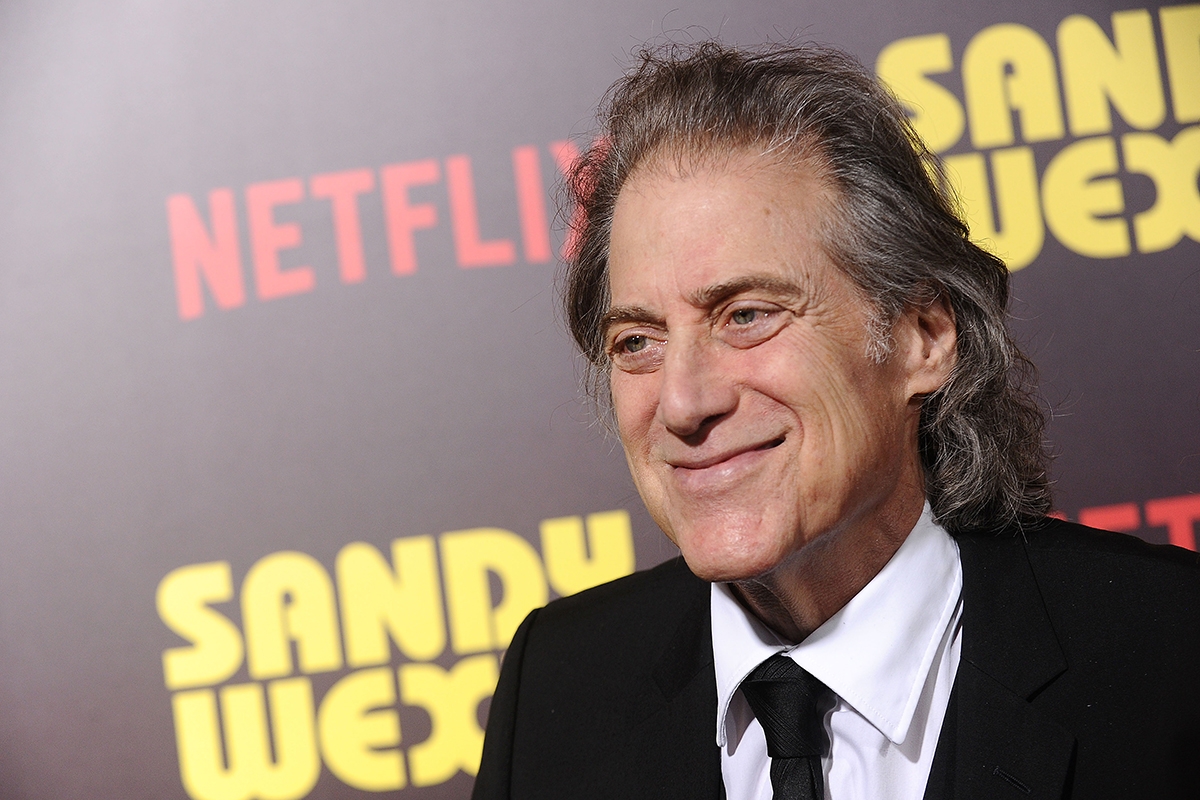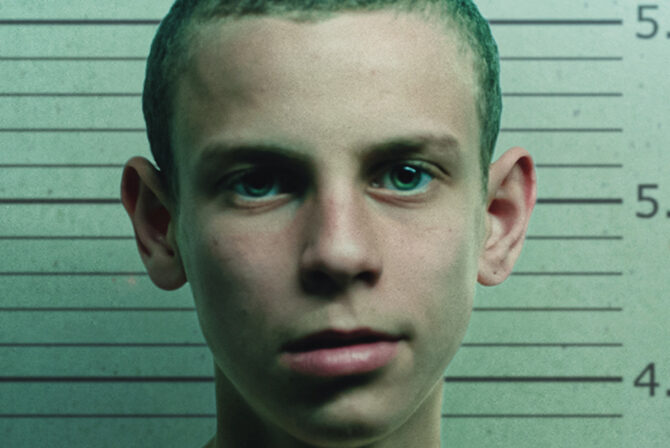Richard Lewis, who passed away this week of a heart attack at age 76, gave us plenty of Jewish roles to remember — including the most Jewish of all Prince Johns in Mel Brooks’ “Robin Hood: Men in Tights.”
One of the Brooklyn-born, New Jersey-raised comedian’s first roles was an aspiring young Jewish comic in “Diary of a Young Comic,” where he played comedian Billy Gondola, whose real last name is Goldstein.
In the sitcom “Anything But Love,” which aired from 1989-1992, Lewis acted across Jamie Lee Curtis playing the overtly Jewish role of Marty Gold, who in one episode reveals that he can read upside down because that was “the only way I could learn Hebrew.” Gold was a successful (and neurotic) journalist who approached Curtis’ Hannah Miller not to hit on her, but because he took interest in her as a fellow writer.
It was Curtis herself who helped Lewis get that role, a kind of unlikely one in the landscape of TV at the time, where men were more often Jewish-coded than they were overtly Jewish.
“I saw a billboard of him about a stand up special on Sunset Boulevard when we were casting the ABC pilot Anything But Love and asked the casting people to bring him in to audition to play my best friend/maybe boyfriend, Marty Gold,” the Jewish actress wrote in an Instagram post eulogizing her former co-star.
“I thought he was handsome. He made me laugh, which is the one thing that a strong, capable woman, can’t really do for herself,” she observed.
Curtis wrote about how much she and Lewis faced together, including the loss of their co-star, Richard Frank, to AIDS-related complications in 1995 and the loss of their producer, John Ritter. And Curtis, who like Lewis struggled with substance abuse, shared that he is the reason she is sober today.
Lewis joked that he owed his career to his distant Jewish mother, a working actress who raised him and his siblings in Englewood while their father ran a catering business. But he probably owed it more to Jewish comedian David Brenner, who insisted that he become a comedian full-time, even giving him a $1000 check to jumpstart his career.
Getting sober in the mid-’90s changed Lewis’ career, and renewed his desire to infuse his work with Jewishness. In 2004, Lewis played Rabbi Glass in the hit WB show “7th Heaven,” an unlikely role in a show about the family of a protestant priest. The role was a chance for Lewis to reconnect with his love for Judaism.
“I’m proud of being a Jew, but for the last 20 years, I’d been more spiritual than observant,” he said about the role. “Getting sober renewed my interest, so when the show called me I almost needed a horah intervention, you know? It’s just so well-written and deals with such important issues. Plus I could have some fun with the part because Rabbi Glass is a Reform rabbi and sort of flamboyant, so I dressed somewhere between Moses and Don Ho.”
He also played the Jewish mythological creature, the golem, in “The Simpsons.”
“I have a tremendous love affair for being a Jew,” Lewis said in 2011. “It’s so much funnier being a Jew than anything else. If we don’t find humor then we’re in deep trouble.”
Yet perhaps his most iconic Jewish role was simply himself. As Andrew Silow-Carroll wrote in JTA, he was the dark prince of Jewish neurosis — a role he fully embodied in his many stand-up gigs, and then so wonderfully on “Curb Your Enthusiasm,” with his former summer camp nemesis and longtime comedy friend Larry David. There’s something about his neurotic, self-deprecating humor that feels natural, funny and strangely light. The neurotic Jewish comedian is not exactly a rare breed, but it was a schtick that felt both genuine and fresh in Lewis.
You can see it in his appearance on a 1986 episode of “The Dr. Ruth Show,” in which despite blaming so much on his Jewish mother — much to the Jewish sex therapist’s consternation — Lewis makes Westheimer smile the most sunshine-y of smiles and laugh and laugh and laugh.
He jokes about interfaith weddings and his mother’s kvetchiness — “she calls me, she says hi, is everything wrong?” — and says that even when he fasts on Yom Kippur, his mother tells him that “I bet you didn’t stay away from the right foods.” He jokes about his “crazy” Jewish family and how they all have a different disorder, so much so that the tables at a recent interfaith family wedding were divided by psychiatric disorders.
“None of us take pleasure personally in our family, we wear pleasure block,” he jests.
At the end of the episode, Dr. Ruth fondly tells Lewis, “What you really need is to find the right girl.”
And while love doesn’t solve everything, it was indeed a nice Jewish girl from Minnesota that helped give Lewis the kind of balance he needed.
When he first met his wife, Joyce Lapinsky, he said she told him, “Let’s nip this in the bud. I’m 42. I’m a Jew from Minnesota. So if that bugs you … And if children are a major thing…” They weren’t. The couple never had children, but they were profoundly in love.
Keaton had his Eleanor
I have my Joyce
❤️ pic.twitter.com/jGJe7NHHkk— Richard Lewis (@TheRichardLewis) February 14, 2024
“Joyce has such a stabilizing effect on him,” Susie Essman, Lewis’ “Curb” co-star, once said. “Everybody is looking for that one person in life who will love you unconditionally, and he’s found that with her.”
“Richard and I were born three days apart in the same hospital and for most of my life he’s been like a brother to me,” Larry David shared in a statement on the social media pages for “Curb.” “He had that rare combination of being the funniest person and also the sweetest. But today he made me sob and for that I’ll never forgive him.”
May his memory be for a blessing.








